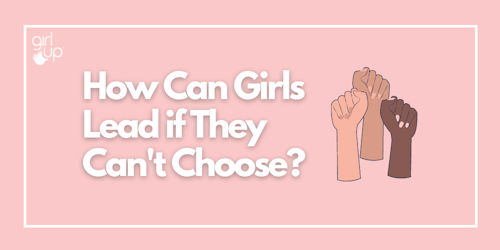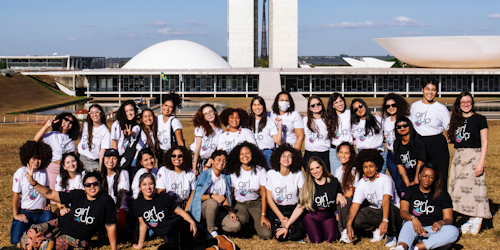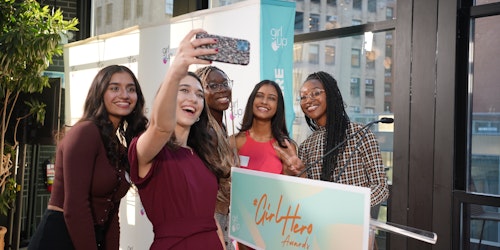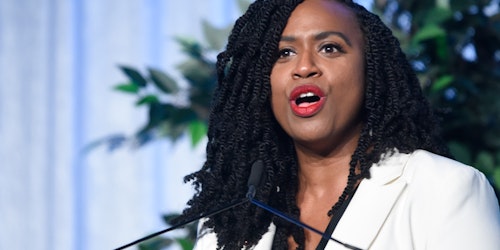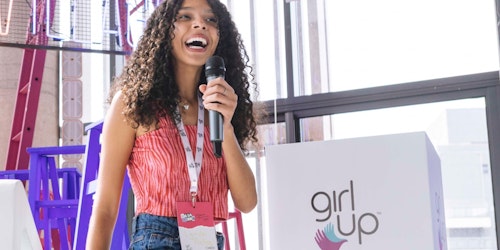Estimated reading time: 7 minutes
Voting matters. Who are elected leaders are, matters. We inherently know this, and yet far too many people here in the U.S. and around the world don’t vote. When underrepresented communities vote, they get more representation. Just look at the national election in Brazil – young people voted in record numbers (thanks in large part to Girl Up Brazil’s get out the vote campaign) – and now their national leader represents more of their collective interests.
Youth activists all around the world have been tirelessly rallying and educating their communities on the importance of voting. Why? The consequences of not voting are far too dire, especially for girls and especially for other marginalized communities.
While every citizen experiences varying degrees of change after a new leader is elected, many laws and rights on the line during this election season in particular, such as universal access to reproductive healthcare in the United States or increased environmental protections in Brazil, will disproportionally impact these marginalized communities far greater and far longer after the polls are closed. Depending on race, gender, socioeconomic class, sexual orientation, and other factors of discrimination, elections have the power to completely transform the truth you’re living in the country you’re living in.
Although our elected officials have a duty to protect girls’ fundamental rights and their full agency to ensure gender justice becomes a reality now—not in 100 years—around the world, the freedom to make autonomous decisions about one’s own body remains threatened.
At Girl Up, our mission is to develop transformative leaders who advance gender justice globally. Developing these young leaders to be our future elected officials is a big part of our vision for a better future for everyone. For our leaders, they see the connections between who is in charge and what that means for society as a whole.
“Civic engagement is crucial for women because while we do have inherent human rights, unfortunately, our rights are not inherently honored. Young people, particularly young women, understand the gravity of this sentiment; we know that our rights can – and will – be taken away if we do not advocate for ourselves,” emphasizes Girl Up Teen Advisor Nora, 17, Florida, USA.
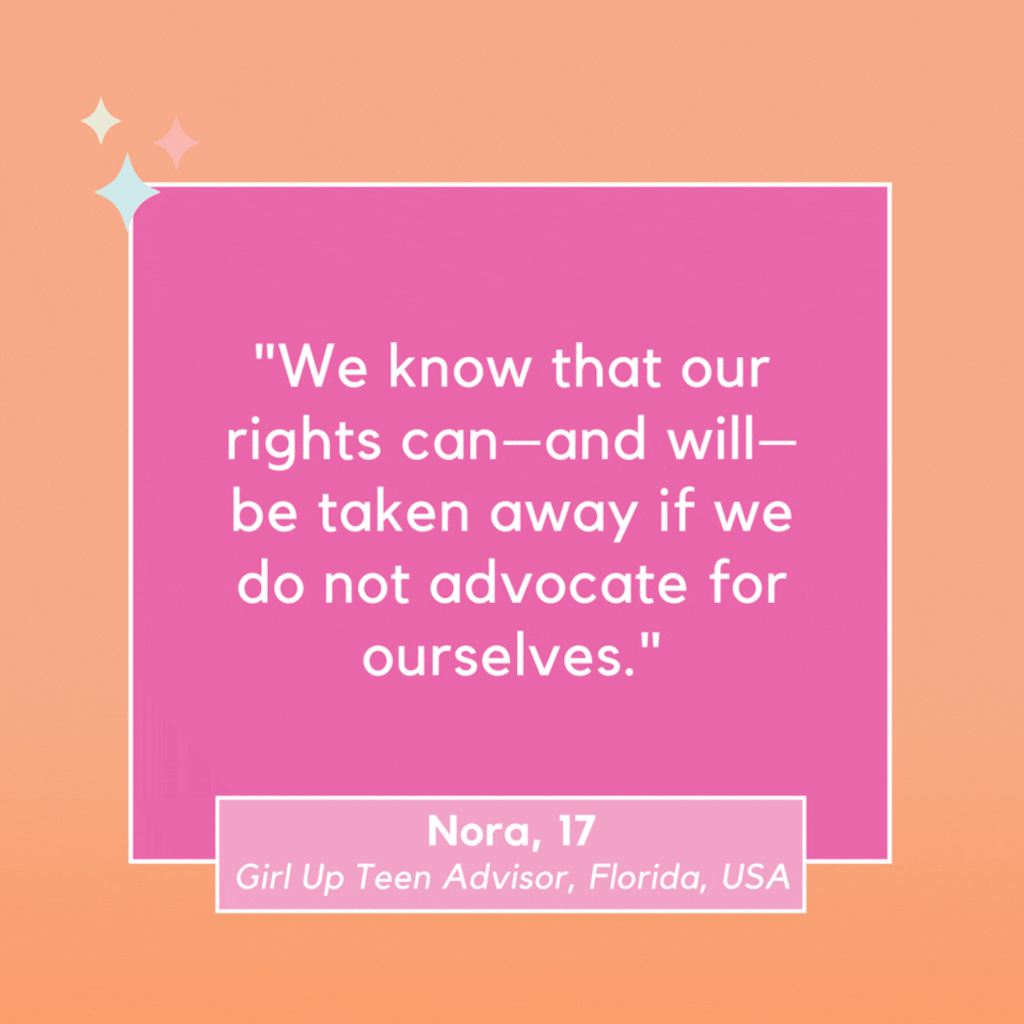
“It is time for change. We can no longer have other people making decisions for us,” vocalizes Girl Up Teen Advisor Nishita, 16, UK. “We are the future generation, the policies made today will impact us tomorrow and it is essential we use the vote, which our female predecessors gave their lives for, to ensure our voices are heard.”
The recent overturning of Roe v. Wade in the US Supreme Court is one stark example why this is necessary to Nishita. “Surely, nine unelected judges should not be able to endanger the safety of more than 160 million people?” she questions. “Female bodily autonomy is a right, not a consideration, and it is our right. So now, more than ever, it is important that the youth unite and recognize the impact politics has on our society.”
Luckily, the youth are doing just that. In Brazil, their historic election just wrapped with 50.8% of voters elected leftist former president Luiz Inácio Lula da Silva to restore social justice to the region’s largest country. As one of the tightest presidential races in Brazil over the last few decades, every vote mattered. One of nine countries worldwide where 16-year-olds are eligible to vote in national elections, Brazil welcomed millions of newly eligible young voters to the polls who were ready to choose the future of their country. And choose they did.
“[This year], 2.1 million young people from ages 16-18 were able to vote— a growth of 51.1% compared to the last presidential election,” shares Girl Up alum Louise, 18, Brazil. “I believe those numbers represent our wish, as a youth, to be heard. Unfortunately, being heard is still difficult in a country with mechanisms that politically exclude a significant number of people, notably indigenous and black communities. Regardless, more than ever, we want to share our ideas, political views, and visions. And considering the number of young voters, I believe we have the power not only to achieve that but also to reshape and renovate the entire political scenario.”
Across the pond in the United Kingdom, the country’s first South Asian Prime Minister was instated a few weeks ago. Although Nishita is “immensely proud” of this milestone, the UK-based teen is still concerned with the state of politics in her country right now. “How can we claim to be democratic when less than 0.003% of the country had a say in who governs it? How are we meant to be representative if our voices are not even heard?” she asks.
With so much at stake this year especially, members of Gen Z who are (for now) too young to vote are relying on us to cast our ballots thoughtfully and knowledgeably. To step up and perform our civic duty not only for this generation of changemakers, but for so many future generations to come. To elect political representatives who will lead democratically and compassionately.
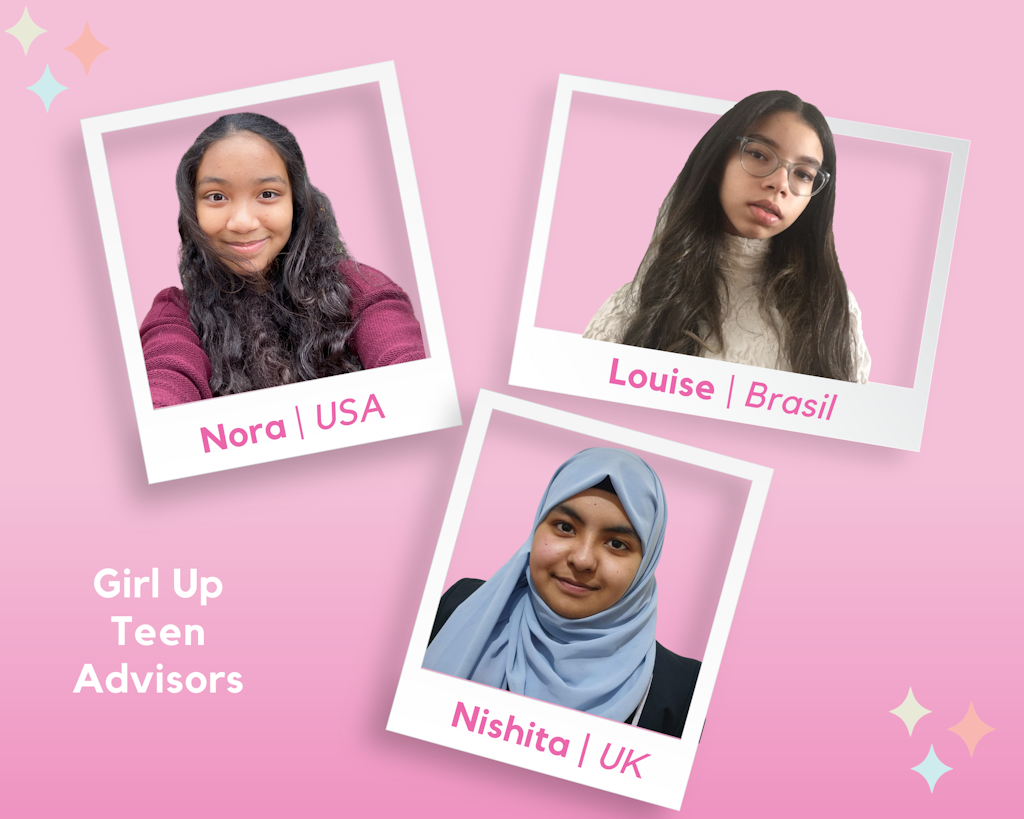
“We are looking for politicians who understand that ‘social issues,’ such as gender inequity, are not political issues – they are human rights issues,” explains Nora. “We need politicians who see through the politicization of these issues and, instead, focus on their humanity. We need officials who value public safety and satisfaction over self-interests. We need politicians who not only come from diverse backgrounds, but who actively protect and uplift their BIPOC peers. We can only get the leaders we need when we vote.”
“As a girl and voter, I expect that my country’s leaders have a non-negotiable commitment to democracy,” affirms Louise. “A democracy that is not only present in discourses but in everyday action. A democracy that will be the cornerstone for the development of policies that respects diversity and pushes for broader social equality.”
“Be it a president or a prime minister, the qualities we look for in a leader remain the same globally: they must have integrity, be pragmatic, empathetic, listen to their people and ensure their policies reflect the needs of the nation,” says Nishita.
But the only way to ensure policies effectively prioritize the needs of all who reside in the country, we need diverse representation in our political systems. Leaders from all backgrounds who will continue amplifying and uplifting those who have been historically excluded from high-level decision-making spaces. “We cannot represent all sectors of society if the people at the top remain the ’default straight, white, male figure’ we have seen for centuries,” continues Nishita.
“I hope politics become a space where marginalized voices are elevated. By occupying a position of protagonism in political spaces, those groups will represent a mass of people that have been silenced and ignored for far too many years.”
Louise, 18, Brasil
There is too much at stake to sit on the sidelines, wherever in the world you live. We can’t change the face and focus of leadership without changing who is leading our governments.
We must vote and we must encourage our friends, families and communities to vote. Our future is counting on us.
Originally published in the “Leading Between the Lines” newsletter on LinkedIn.
